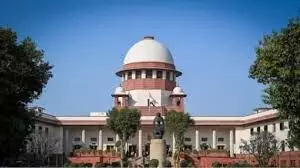
SC forms bench to address Punjab and Haryana HC judge's defiance of SC order
text_fieldsNew Delhi: In a notable move, the Supreme Court of India has expressed grave concern over the actions of Punjab and Haryana High Court judge Rajbir Sherawat, who defied a Supreme Court directive. Chief Justice of India (CJI) D Y Chandrachud, along with the four most senior justices, convened a special bench on Wednesday to address the ramifications of Justice Sherawat's contentious order from July 17.
In his order, Justice Sherawat provocatively stated, “A tendency to presume the Supreme Court to be more ‘Supreme’ than it actually is and to presume a high court to be less ‘High’ than it constitutionally is.”
The bench, including CJI Chandrachud and Justices Sanjiv Khanna, B R Gavai, Surya Kant, and Hrishikesh Roy, will deliberate on Justice Sherawat’s order, which postponed a contempt proceeding due to the Supreme Court's stay. Justice Sherawat argued that the Supreme Court's instructions aimed to subordinate high courts to the apex court, thereby compromising their independence. He asserted, “This may not always be feasible for a high court to follow such a directive due to specific case circumstances or statutory provisions.”
Justice Sherawat's position has ignited a discussion on judicial propriety and the judiciary's hierarchical framework. He argued that contempt proceedings initiated by a single-judge high court bench should first be appealed to the division bench of the high court, with the Supreme Court's role coming into play only if the division bench's conviction is contested.
Highlighting the Supreme Court’s overarching authority, Justice Sherawat questioned its power to halt high court actions under Article 215 of the Constitution of India and the Contempt of Courts Act. He suggested that the Supreme Court's intervention had caused considerable harm. Additionally, he criticized the Supreme Court for attempting to regulate the high court's roster and issuing guidelines for appointing senior advocates, arguing that this directive rendered high courts subservient to the Supreme Court.





